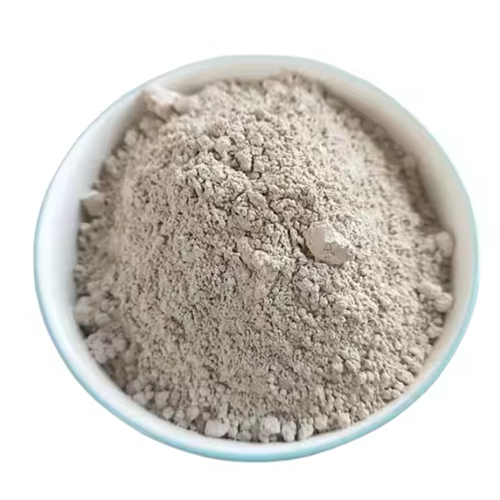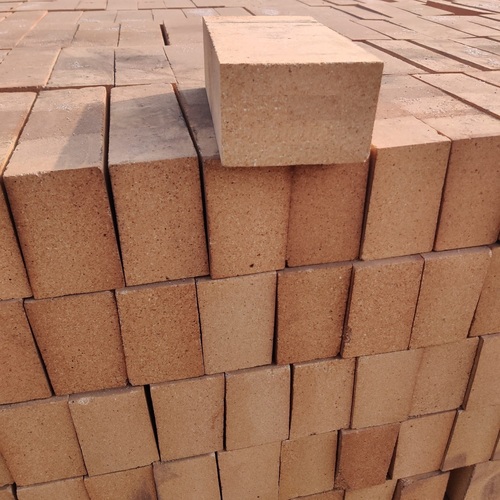Product Description
Calcined Bauxite is a crucial raw material primarily used in the production of aluminum and various refractory applications. It is obtained by heating high-grade bauxite at high temperatures (850°C to 1600°C), which removes moisture and volatile components, thereby increasing its alumina content. Compared to raw bauxite, which contains around 57-58% alumina, calcined bauxite has an alumina content ranging from 84% to 88%. This process enhances its hardness, density, and thermal stability, making it suitable for a variety of industrial applications.
Performance and characteristics of Bauxite Ore:
- High Alumina Content: Calcined bauxite contains 84% to 88% Al₂O₃, ensuring excellent refractory properties.
- Superior Thermal Stability: Withstands high temperatures, making it ideal for furnace linings and other high-heat applications.
- High Bulk Density: The increased density enhances mechanical strength and durability.
- Low Impurity Levels: Minimal Fe₂O₃, TiO₂, and alkali metal oxides, reducing unwanted reactions in industrial processes.
- Excellent Abrasion and Corrosion Resistance: Provides long-lasting performance in harsh environments.
- High Hardness: Ensures durability in wear-resistant applications such as abrasive materials.
Certificate of Analysis
Declare sample name:
Testing standards:
| Parameter | 50-60% Al₂O₃ | 60-70% Al₂O₃ | 75% Al₂O₃ | 80% Al₂O₃ | 85% Al₂O₃ | 86% Al₂O₃ | 87% Al₂O₃ | 88% Al₂O₃ |
|---|---|---|---|---|---|---|---|---|
| Al₂O₃ (%) | 50-60 | 60-70 | 75 | 80 | 85 | 86 | 87 | 88 |
| Fe₂O₃ (%) | ≤3.0 | ≤3.0 | ≤3.0 | ≤3.0 | ≤1.8 | ≤1.5 | ≤1.5 | ≤1.5 |
| TiO₂ (%) | ≤4.0 | ≤4.0 | ≤4.0 | ≤4.0 | ≤4.0 | ≤4.0 | ≤4.0 | ≤4.0 |
| K₂O + Na₂O (%) | ≤0.3 | ≤0.3 | ≤0.3 | ≤0.3 | ≤0.3 | ≤0.3 | ≤0.3 | ≤0.25 |
| CaO + MgO (%) | ≤0.5 | ≤0.5 | ≤0.5 | ≤0.5 | ≤0.5 | ≤0.5 | ≤0.5 | ≤0.5 |
| Bulk Density (g/cm³) | ≥2.55 | ≥2.75 | ≥2.80 | ≥2.90 | ≥3.10 | ≥3.20 | ≥3.30 | ≥3.35 |
Product Applications :
Calcined Bauxite is widely used across various industries due to its high alumina content, thermal stability, and mechanical strength. Some key applications include.
Refractory Industry:
- Used in the manufacture of high-alumina refractory bricks, castables, and ceramic materials.
- Essential in the lining of furnaces, kilns, and other high-temperature industrial equipment.
Abrasive Materials:
- Used as a raw material for producing grinding wheels, blasting media, and coated abrasives.
- Provides excellent hardness and durability for polishing and surface treatment applications.
Metallurgical Industry:
- Integral in the production of aluminum metal through the Bayer process.
- Used in steelmaking for ladle linings and furnace linings.
Road Construction
- Utilized in high-friction surface treatments for roadways, airstrips, and pedestrian walkways to enhance skid resistance.
Water Filtration
- Acts as a filtration medium in water treatment plants due to its high purity and chemical resistance.
Foundry and Precision Casting
- Used in investment casting molds due to its superior thermal resistance and stability.


